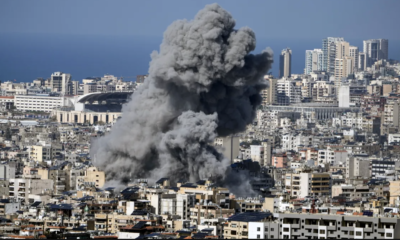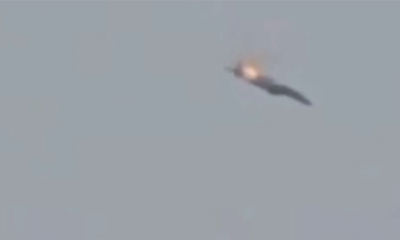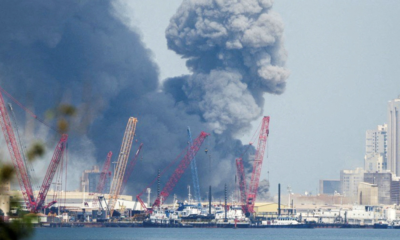Global News
North Korea Fires Test Missiles Amid Rising Tensions and U.S. Election
North Korea launched a round of short-range ballistic missiles, marking its second missile test within days. The timing of the launch, coinciding with the U.S. presidential election, underscores escalating tensions between Pyongyang and Washington. The launch, detected by South Korea’s Joint Chiefs of Staff, involved missiles flying approximately 248 miles eastward into the Sea of Japan, intensifying regional security concerns and leading Seoul to bolster its surveillance and defence posture.
This latest North Korea missile launch test comes shortly after test-firing of its most advanced intercontinental ballistic missile (ICBM), equipped with solid-fuel technology. According to North Korean state media, this advanced ICBM represents a direct countermeasure to perceived U.S. hostilities, particularly in response to recent trilateral military drills involving the United States, South Korea, and Japan. The drills, which saw the deployment of a U.S. B-1B bomber alongside South Korean and Japanese fighter jets, were deemed by North Korea as a show of aggression. In a statement, Kim Yo Jong, the influential sister of North Korean leader Kim Jong Un, characterized the exercises as “absolute proof” of the need to enhance North Korea’s nuclear deterrent, calling them an “aggressive action” by the U.S. and its allies.
The North Korea missile launch tests also follow accusations from US and Ukrainian officials that North Korea is deploying soldiers to support Moscow in its ongoing Ukraine Russia war, allegations that Pyongyang denies. South Korea has observed thousands of North Korean soldiers under Kim Jong Un, reportedly stationed along the front lines in Russia, particularly in the Kursk region. Jeon Ha-gyu, a spokesperson for the South Korean Defense Ministry, stated that more than 10,000 North Korean troops are currently positioned in Russia. He also noted that South Korea is reviewing its policies regarding the supply of arms to Ukraine in response to North Korea’s reported military involvement.
In addition, the United States has recently approved a $4.92 billion military aid package for South Korea, including advanced early warning systems such as the E-7 Wedgetail. This system enhances South Korea’s capabilities to detect and respond to North Korean missile launches, adding a significant layer to the country’s defence infrastructure. The State Department stated that the advanced systems would improve South Korea’s intelligence, surveillance, and reconnaissance capabilities, strengthening its interoperability with U.S. forces.
The international community has expressed concern over North Korea’s continued missile activities. U.S. Deputy Ambassador to the U.N. Robert Wood condemned the missile launches, criticizing Russia and China for blocking U.N. actions against Pyongyang. He argued that their protection has emboldened North Korea, leading to frequent violations of U.N. sanctions and resolutions.
The geopolitical climate around North Korea intensifies as Pyongyang’s close ties with Moscow and military assistance to Russia amplify concerns. The collaboration allows North Korea to persist with its missile development unfettered, posing a growing challenge for regional and global security.












































